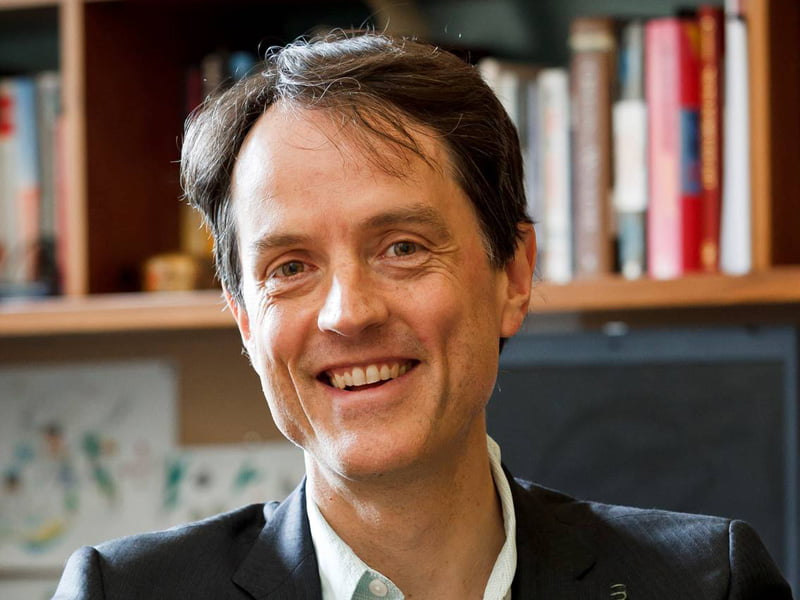Australia has been chastised by the chief scientist for being slow to harness entrepreneurship as a driver of economic growth, with universities facing particular criticism.
But a number of institutions are now rising to the challenge.
Professor Ian Chubb’s recently released report, Boosting High Impact Entrepreneurship in Australia, finds that although the country has one of the highest business creation rates worldwide, very few start ups are able to scale globally.

It notes that while the US has Stanford and MIT which between them have turned out 65,000 graduates who have founded technology related businesses, “Australia has been slow to embrace entrepreneurship as a driver of economic growth”.
However a series of institutions are stepping up, integrating entrepreneurial skills into undergraduate courses, and offering a growing range of postgraduate courses.
University of Technology Sydney (UTS) and the University of Melbourne are among the cohort introducing post graduate entrepreneurship degrees in 2016.
The Master of Ormond College at Melbourne, Associate Professor Rufus Black, said:
“The chief scientist is right in saying there is a lot of work that needs to be done across the country but there are a number of universities already on this agenda. This is a prompt to something that is already starting to move.”
The clutch of tertiary institutions offering entrepreneurship education includes Swinburne, La Trobe and Queensland University of Technology. The University of Adelaide is offering an entirely online Masters of Innovation and Entrepreneurship, RMIT has an entrepreneurship masters for people working in fashion and Macquarie University is running a social entrepreneurship course.
There is also a range of entrepreneurship Moocs (massive open online courses) offered through Coursera and the like.
UTS and the University of Melbourne (through its Wade Institute) are however intent on becoming Australia’s Stanford and MIT-equivalent entrepreneur hubs.
Speaking at the InnovationAus.com Open Opportunity forum last week, Professor Roy Green, business school dean said that UTS’ Masters of Entrepreneurship, which kicks off next year, had been designed in consultation with the start up community. UTS has also secured Apple co-founder Steve Wozniak as a professor.
Green acknowledged that one of the biggest gaps in Australia related to “creating an entrepreneurial mindset.”
But he also noted that for university academics at present; “All the incentives are wrong” in terms of encouraging more interaction with commerce and industry with the emphasis still on the old adage publish or perish. In that environment academics were “much better to lock themselves away. Often relationships with industry are transactional and tense.”
Both UTS and the Wade Institute will be attempting to redress that through their Masters of Entrepreneurship Courses.
The Wade Institute was established thanks to a $10 million donation from Peter Wade, entrepreneurial founder of Travelbag which was sold to ebooker for £55GBP million in 2003. The organisation is currently conducting final interviews with two international candidates to take on the role of chair of entrepreneurship, and until then Rufus Black – whose corporate life began in a dot com accelerator in Munich before spending nine years at McKinsey & Co – has oversight of the institution.
Wade hopes to attract a cohort of up to 40 for its one year Masters of Entrepreneurship in 2016. Black said that a year and a half of content has been shoehorned into the one year full time course, which will cost $48,000.
Corporate scholarships for the course have been announced by the likes of Australia Post, Corrs Chambers Westgarth and Credit Suisse, along with a Naomi Milgrom funded scholarship for women entrepreneurs, while a group of Ormond alumni have created a scholarship fund.
There is also the carrot of two $10,000 prizes for the most impressive projects that emerge from the Masters of Entrepreneurship students.
The people now applying for the Masters course according to Black are; “Primarily people in their mid-20s who have started a business and decided to upgrade their skills and build a bigger and more successful business; people who have been out in the workforce for a year or two and decided they don’t want to work for a corporate because they have got the idea that they want to pursue themselves.” There’s also a small group of academics who now want to commercialise their ideas.
“It’s very much the kind of profile you would see in the great entrepreneurial universities of the world, this is the sort of Stanford or MIT type of profile.” Black said that the Wade model is a best of breed, with elements of both Stanford and MIT’s approaches embracing both Lean start up and design thinking approaches, along with courses to “develop the entrepreneur within”.
“They come to us if they want something incredibly personal and incredibly practical and that actually wires them into the entrepreneurial ecosystem, there is no online in this – you are in potentially close contact with the whole entrepreneurial community and incredibly hands on.”
He does not believe that online alternatives offer the connections, personal skills and introductions to networks that are fundamental to securing success as an entrepreneur. One potential stumbling block is that only university graduates will be accepted onto the course. University drop outs – including the likes of Steve Jobs – won’t get a guernsey.
Black said; “It’s a different time and a different place. There are a range of pathways to be an entrepreneur – we are not claiming this is the only way, but for people who are conscious they want a particular skills set to help them succeed, we are that pathway.”
* Photo Credit: The University of Melbourne
Do you know more? Contact James Riley via Email.

